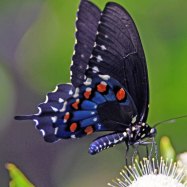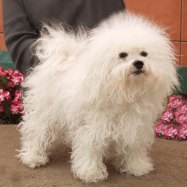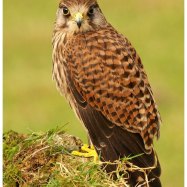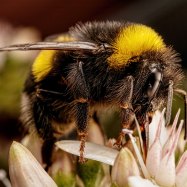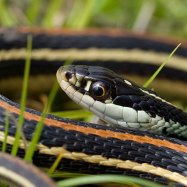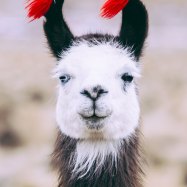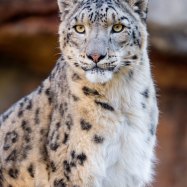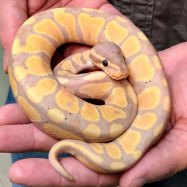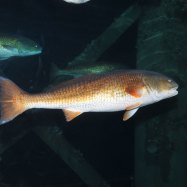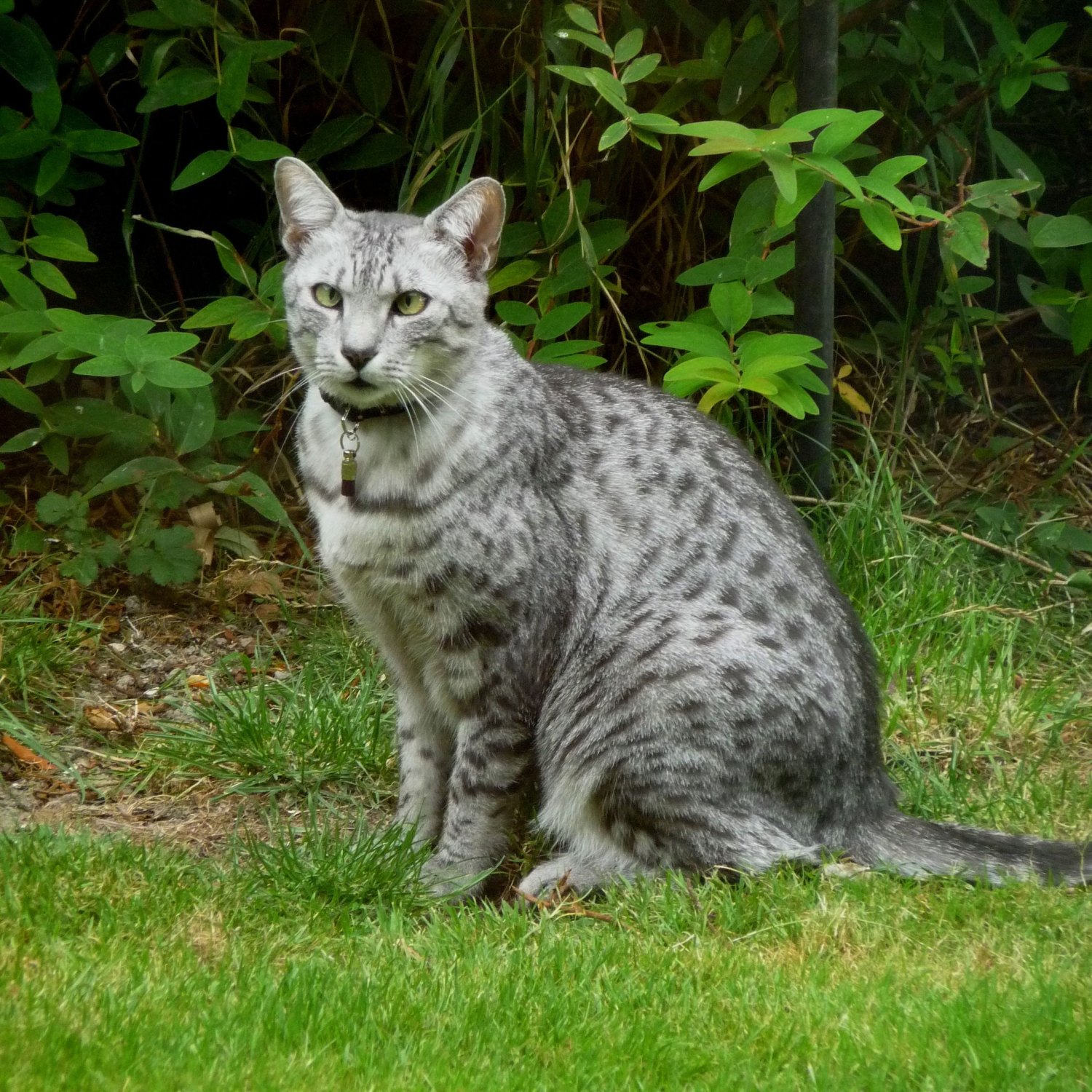
Egyptian Mau
Medium
The Egyptian Mau, a medium-sized and muscular cat, is a beloved family pet that thrives in urban areas. With its elegant spotted coat and playful personality, this felidae breed is sure to capture your heart. Keep this intelligent and sociable animal entertained with plenty of toys and playtime. Adopt an Egyptian Mau and add a touch of luxury to your city living. #EgyptianMau #FelineFun #UrbanPets
Animal Details Summary:
Common Name: Egyptian Mau
Kingdom: Animalia
Habitat: Domestic
The Graceful Egyptian Mau: A Fascinating Feline
When one thinks of cats, the first image that comes to mind is usually a domesticated pet or a street cat roaming in an urban area. However, there is one particular breed of cat that stands out among the rest – the Egyptian Mau. With its unique features and history, this feline is more than just a household pet – it is a reflection of the country it originated from. In this article, we will explore the charming traits of the Egyptian Mau, from its genetic makeup to its distinctive characteristics Egyptian Mau.The Scientific Name and Classification
Before we delve into the details of the Egyptian Mau, let's first understand its scientific name and classification. The Egyptian Mau's scientific name is Felis catus, and it falls under the Kingdom Animalia, Phylum Chordata, Class Mammalia, Order Carnivora, and Family Felidae. Its scientific classification may sound complex, but it simply means that the Egyptian Mau is a mammal belonging to the cat family, and it shares similar characteristics with other felines.Country of Origin and Geographical Distribution
As its name suggests, the Egyptian Mau originated in Egypt, making it one of the oldest known domestic cat breeds. The ancient Egyptians considered cats sacred and worshipped them, and the Egyptian Mau was no exception. These cats were not only highly valued by the Egyptians for their hunting abilities, but they were also treasured for their companionship and beauty.Today, Egyptian Maus can be found all over the world, as they are a popular breed among cat lovers. They can be seen in both rural and urban areas, but they prefer to reside in urban settings where they can receive ample affection and attention from their owners.
The Stunning Spotted Coat
One of the most striking features of the Egyptian Mau is its coat Eastern Gorilla. It has a short, shiny coat with a spotted pattern. The spots can range from black to silver, and they are randomly distributed on the cat's body. What's even more fascinating is that these spots are not only on the fur, but they can also be seen on the skin – a unique characteristic that is exclusive to the Egyptian Mau.The coloration of an Egyptian Mau's coat is not the only thing that makes it stand out. These cats have a characteristic "M" marking on their forehead, just like many other domestic cat breeds. However, unlike other cats, the Egyptian Mau's marking is inverted, giving it a distinctive look.
Athletic and Muscular Body
The Egyptian Mau may look delicate with its slender body, but don't be fooled – these cats are highly athletic and muscular. They have a medium-size body frame with a long, lean neck and legs, making them agile and swift hunters. Their hind legs are slightly longer than their front legs, giving them a unique gait that mimics a leopard.Another remarkable physical feature of the Egyptian Mau is its highly flexible spine. This allows them to move with incredible speed and precision, making them excellent hunters. They are also known for their ability to jump high, up to six times their body length, which is uncommon among domestic cats.
A Carnivorous Appetite
Just like any other cat, the Egyptian Mau is a carnivore – meaning they primarily eat meat-based diets. The diet of an Egyptian Mau is essential in maintaining their muscular build and overall health. As natural-born hunters, these cats have a strong prey drive, making them excel at catching rodents and birds.To keep your Egyptian Mau healthy and energized, it's essential to provide them with a high-quality diet rich in protein. Raw or cooked meat, along with some vegetables, can provide the necessary nutrients for a happy and healthy feline.
Living in Domestic Environments
Egyptian Maus have been domesticated for centuries and have adapted to living in human households. They form strong bonds with their owners and crave attention and affection from them. These cats are known to be loyal, loving, and very social – traits that make them a desirable pet for many people.However, despite their docile nature, the Egyptian Mau still has a wild side. They love to play and will often engage in activities that mimic their hunting instincts, such as stalking and pouncing. It's crucial to provide them with plenty of mental and physical stimulation to keep them happy and satisfied.
A Perfect Fit for Urban Areas
One of the reasons why Egyptian Maus are popular in urban areas is their adaptability. These cats thrive in urban settings as long as they have easy access to the outdoors and plenty of space to roam and play. However, they are also content living indoors as long as they receive regular exercise and attention.Their independence also makes them a good fit for busy city dwellers. They do not require constant supervision and are content with entertaining themselves when left alone for a few hours. However, they are also affectionate and love to spend quality time with their owners, making them an excellent companion for those who want a balance between independence and companionship.
A Unique Breed with a Rich History
As mentioned earlier, the Egyptian Mau is not your ordinary domesticated cat. This breed has a rich history and has been revered by ancient civilizations for centuries. They are one of the few domestic cat breeds whose genetic makeup remains mostly unchanged, and they still possess characteristics that are similar to their wild ancestors.Their history and unique features make the Egyptian Mau a sought-after breed, with many enthusiasts willing to pay top dollar to own one. However, if you are planning to add an Egyptian Mau to your family, it's crucial to research and find a reputable breeder who can provide you with a healthy and well-bred cat.
In Conclusion
The Egyptian Mau is not just a domestic cat breed – it is a living, breathing symbol of Egypt's ancient culture and history. With its stunning spotted coat, muscular body, and athletic abilities, this feline is truly one-of-a-kind. From its country of origin to its adaptability to urban living, the Egyptian Mau is a perfect example of how a cat can be both wild and domestic at the same time. So if you ever come across an Egyptian Mau, take a moment to appreciate this fascinating feline and its long-standing legacy.

Egyptian Mau
Animal Details Egyptian Mau - Scientific Name: Felis catus
- Category: Animals E
- Scientific Name: Felis catus
- Common Name: Egyptian Mau
- Kingdom: Animalia
- Phylum: Chordata
- Class: Mammalia
- Order: Carnivora
- Family: Felidae
- Habitat: Domestic
- Feeding Method: Carnivorous
- Geographical Distribution: Worldwide
- Country of Origin: Egypt
- Location: Urban areas
- Animal Coloration: Spotted
- Body Shape: Medium-sized and muscular
- Length: Medium
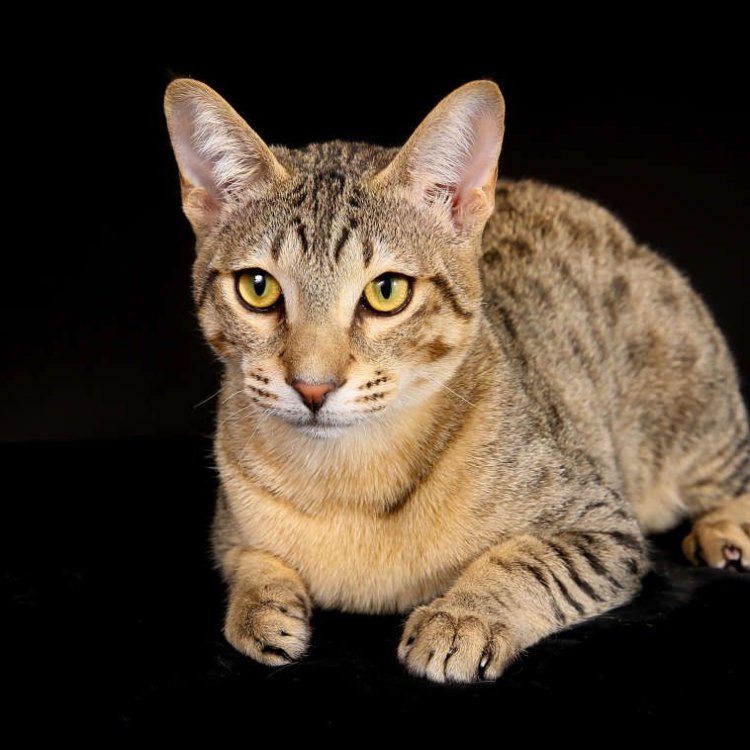
Egyptian Mau
- Adult Size: Small to medium
- Average Lifespan: 12-16 years
- Reproduction: Sexual
- Reproductive Behavior: Territorial
- Sound or Call: Varies
- Migration Pattern: Non-migratory
- Social Groups: Solitary or small groups
- Behavior: Active
- Threats: None in domestic settings
- Conservation Status: Not evaluated
- Impact on Ecosystem: Not significant
- Human Use: Companion animal
- Distinctive Features: Spotted coat
- Interesting Facts: Considered one of the oldest domesticated cat breeds
- Predator: None in domestic settings
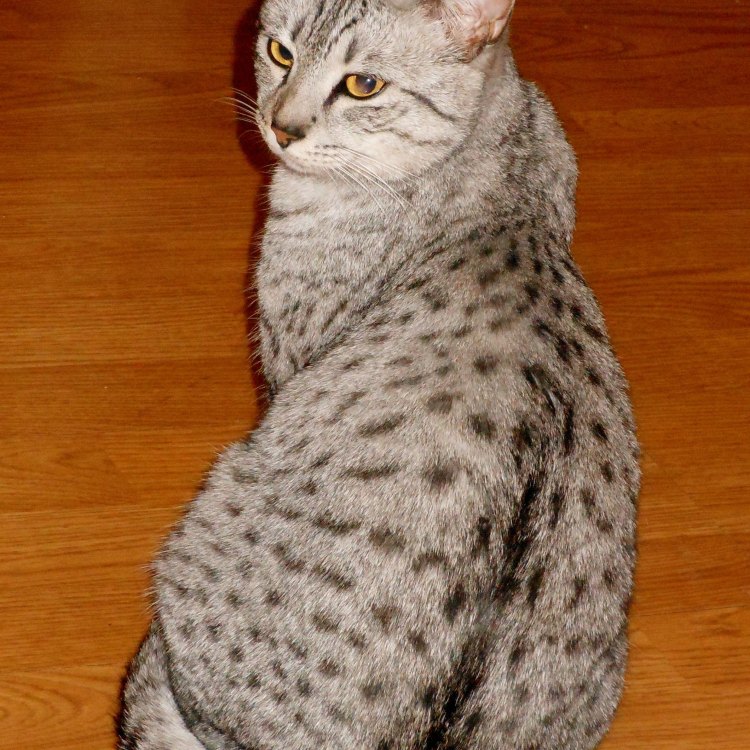
Felis catus
The Egyptian Mau: A Unique and Ancient Feline Companion
When you think of ancient Egypt, images of majestic pyramids, regal pharaohs, and iconic gods and goddesses might come to mind. But did you know that even cats played a significant role in ancient Egyptian society? The Egyptian Mau, one of the oldest domesticated cat breeds, is a living testament to this rich history. This small to medium-sized feline has been a beloved companion of humans for centuries, and its distinctive features and behaviors continue to captivate cat lovers to this day.The Egyptian Mau's Origins
Ancient Egyptian artwork and mythology often depict cats, indicating their importance in the culture PeaceOfAnimals.Com. But it was not until the 20th century that genetic studies confirmed that the Egyptian Mau truly originated in Egypt. DNA evidence shows that the breed is closely related to the African wildcat, Felis silvestris lybica, which is still found in the natural habitats of Egypt.
It is believed that the Egyptian Mau is a descendent of the sacred cats worshipped in ancient Egyptian temples. These cats were held in high regard, preserved through mummification, and often depicted in religious and cultural art. Therefore, it is no surprise that this regal and beautiful breed was given the name "Mau," which translates to "cat" in ancient Egyptian.
Distinctive Features: Spotted Coat
The most striking feature of the Egyptian Mau is its spotted coat, which sets it apart from other domesticated cat breeds. The coat can come in three colors: silver, bronze, and smoke. The spots are not randomly scattered but have a unique "scarab beetle" pattern, with a distinct line of spots running down the spine. This pattern is a nod to the Egyptian religious symbol for resurrection and eternal life Eastern Dobsonfly.
Unlike other spotted cat breeds that have a tabby pattern, the Egyptian Mau's spots are not symmetrical, making each cat's coat truly unique. These spots give the Mau a wild and exotic appearance, but don't be fooled - they are all domesticated and make excellent indoor companions.
Temperament and Behavior
The Egyptian Mau's appearance may give off a wild and mysterious vibe, but in reality, they are affectionate and loyal cats. They form strong bonds with their owners and enjoy being around their human companions. This breed is known to be social and interactive, often following their owners around the house. They are also highly intelligent and can be trained to play fetch and use toys.
Additionally, the Egyptian Mau is known to be an active and athletic breed, and their behavior reflects this. They love to climb and play, and their curious nature means they will explore every corner of your home. It's important to provide them with plenty of toys and opportunities for physical activity to keep them entertained and satisfied.
Reproductive Behavior and Social Groups
As a sexually reproductive species, the Egyptian Mau's territorial behavior comes into play during breeding season. The males will mark their territories and may display territorial aggression towards other cats. However, this behavior is not a cause for concern in domestic settings, and the Mau is generally a peaceful breed.
They can also live in solitary households, but they do enjoy the company of other cats. In fact, they are known to form small social groups with other cats, bonding and playing with them. So if you're thinking of getting an Egyptian Mau, consider adopting a pair for double the fun and love.
The Egyptian Mau's Impact on the Ecosystem
Unlike its wild ancestor, the African wildcat, the Egyptian Mau has no significant impact on the ecosystem. They are strictly domesticated cats and do not pose a threat to any other species. In fact, their presence can even help control rodent populations in their homes.
This breed has also not been evaluated for conservation status, as they are not found in the wild. However, it is essential to note that responsible breeding practices are crucial to maintaining the health and well-being of the breed.
Human Use
As mentioned earlier, the Egyptian Mau is strictly a domesticated cat breed, and their primary use is as a companion animal. They make fantastic indoor pets, as they are clean, low maintenance, and affectionate. Their playful and active nature means they are excellent for families with children and can make a beloved addition to any household.
Threats and Conservation Status
One of the advantages of domestication is the lack of threats and predators in a controlled environment like the home. The Egyptian Mau faces no threats in domestic settings and lives comfortably and safely with its human family. However, responsible ownership is crucial in keeping them safe and healthy.
Currently, the Egyptian Mau is not evaluated for conservation status, as they are a domesticated breed. However, it is essential to ensure that this ancient breed stays healthy, so responsible breeding practices and proper healthcare are essential.
Interesting Facts
Did you know that the Egyptian Mau holds the Guinness World Record for the world's fastest domesticated cat? With a top speed of around 30 miles per hour, they have earned the title "the greyhound of the cat world." This speed and agility are due to their long hind legs and lean body, making them efficient hunters in the wild.
Another interesting fact about the Egyptian Mau is their vocalization. While most domesticated cats meow and purr, the Mau's sound or call can vary, sometimes resembling a chirp or a trill. These sounds are unique to the breed and add to their enchanting and mysterious nature.
Conclusion
The Egyptian Mau may not be as renowned as the ancient pyramids or pharaohs, but this breed is a living link to ancient Egyptian culture. Its distinctive features, unique behaviors, and rich history make it a fascinating and beloved companion animal. As we continue to appreciate and care for this breed, we are honoring its ancient roots and preserving its legacy for generations to come.
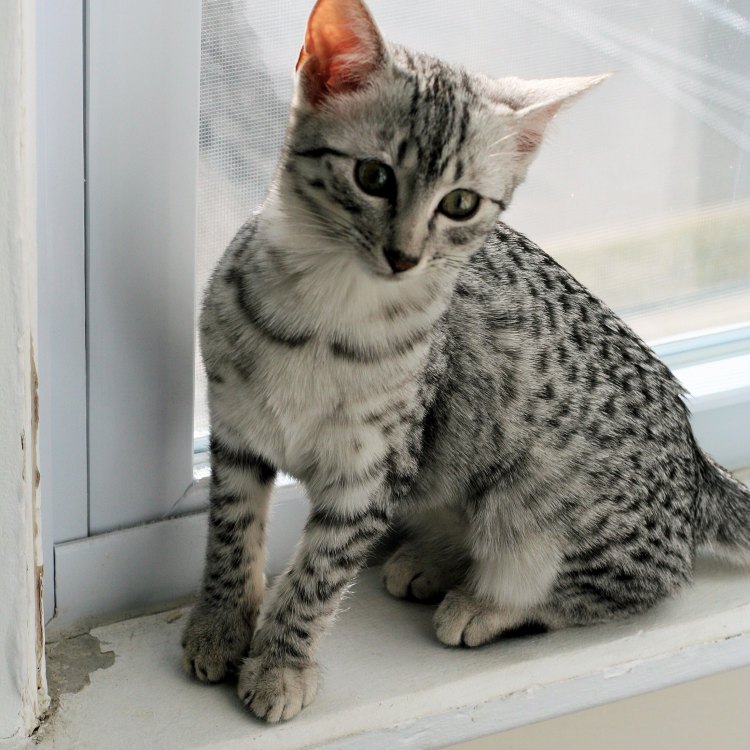
The Graceful Egyptian Mau: A Fascinating Feline
Disclaimer: The content provided is for informational purposes only. We cannot guarantee the accuracy of the information on this page 100%. All information provided here may change without prior notice.

